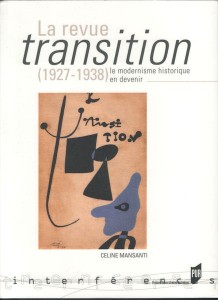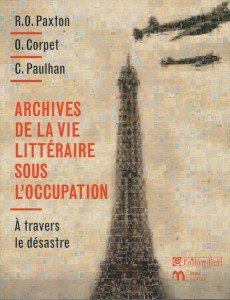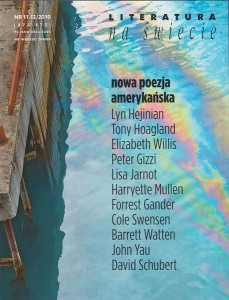

Two publications I brought back from France this summer, both of which I would like to consider (and question) as possible definitions of “the literary”—after a quote from Jacques Rancière (cited by Omar Berrada): “L’homme est un animal politique parce qu’il est un animal littéraire, qui se laisse détourner de sa destination ‘naturelle” par le pouvoir des mots.” At which I asked, “How broad is “literature” for Rancière? Why would he not say, simply, “language”—or language in a certain sense?” Let us imagine two versions of “the literary” are represented by the above works: one a critical history of the international avant-garde journal transition, by modernist literary historian Céline Mansanti, and the other the catalogue of a stunning exhibition of politics, culture, and literature under the Occupation and during the Resistance. My thesis is that the “literary” should include both options, and I would go so far as to speculate that the “literary” in the French postwar period takes its fundamental bearings from the condition of print culture during the period of “national” instability. Hence my question of Rancière: is this the “literary” in the sense of the quote (“un animal littéraire”), or is there a more encompassing usage—something like “language,” as I suggested.












